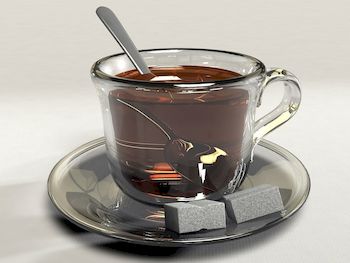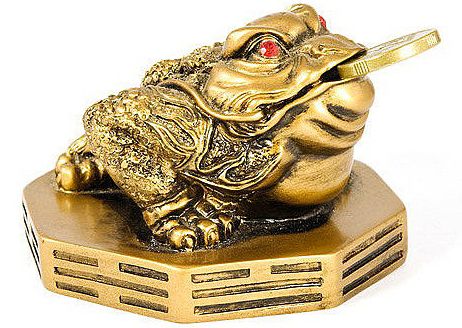
There are many folk beliefs and superstitions associated with the use of cutlery. For example, folk wisdom tells modern people why they shouldn't leave a spoon in a glass of tea. Knowing these ancient beliefs can help avoid many problems.
The people of ancient Rus' believed that every piece of cutlery in the home possessed magical powers. In the old days, each family member had their own spoon, which no one else could use. According to folk wisdom, leaving a spoon in a mug of tea was unlucky. Doing so could bring on serious health problems and other misfortunes.
According to ancient legends, a metal spoon is an object that requires extreme care. Through its metal, evil spirits can enter the tea, and through the drink, even the person themselves. Our ancestors believed that a spoon served as a kind of bridge for evil spirits, which, once crossed, would allow them to easily possess their chosen victim.
A demon possessing a person is a serious curse, according to popular belief. The evil spirit takes over not only the body but also the soul of its victim. It forces the person to commit terrible acts and deprives them of reason. A person possessed by an evil spirit poses a serious danger to others and to themselves. They will seek to take their own lives.
To avoid being possessed by evil spirits, our ancestors never left a spoon in their teacup. The utensil was used only to stir the sugar, after which it was removed from the cup and set aside. Only after this manipulation did they begin drinking their tea and enjoying the hot, aromatic beverage with peace of mind.
Leaving a spoon in tea is especially dangerous for young women. According to folk belief, such forgetfulness threatens an unmarried woman with an unsettled love life. Leaving a spoon in a mug foretells a quarrel and separation from a lover. If a young woman makes a habit of leaving a spoon in her cup, she faces celibacy.
Matchmakers paid particular attention to the behavior of marriageable girls at the table. A breach of etiquette during tea indicated to others that the girl was poorly brought up and did not respect traditions. Leaving a spoon in her tea was a sure sign to the matchmakers that this person would not be a good housewife or wife. Such a teatime lapse significantly reduced the girl's chances of a successful marriage.
Leaving a spoon in a mug of tea is a bad omen for a married person, too. It foretells a family scandal and discord between husband and wife.
According to folk wisdom, a guest who leaves a spoon in their tea will soon quarrel with the host. Their friendship will fizzle out, and there will be no more friendly relations.
Forgetfulness at the table can lead to discord with parents. If a child leaves a spoon in their cup while drinking tea with their parents, they will soon become distant from their family, keep secrets from their parents, and begin to avoid them.
If a spoon left in tea causes the drink to spill on the tablecloth, floor, or clothing, this is also a very bad omen. Along with the spilled tea, a person's luck will also disappear. Anyone who spills the contents of a cup while drinking tea will soon face a series of misfortunes. Problems will begin to haunt them, and it will be very difficult to overcome the onset of a bad streak in their life.
The whole point is that someone who violated table etiquette offended the good spirits by spilling tea on the table or floor. Their wrath threatens the person with loss of material wealth and business success.
Now, knowing the folk signs and beliefs about spoons, you will certainly not carelessly leave cutlery in a mug of tea.





